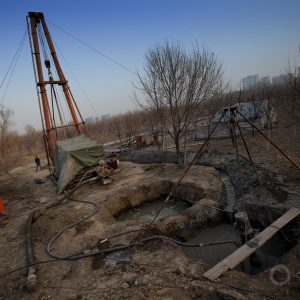The Stream, June 15: Dams Planned For Brazil’s Amazon Put Society, Ecology At Risk, Report Says
The Global Rundown
A dam-building spree planned for the Brazilian Amazon would create major social, economic, and environmental problems, according to a new report from Greenpeace. A lack of clean water and medical services is raising the risk of disease for residents and refugees of Fallujah, Iraq. Some areas of Palestine have been without water service for more than a month due to cuts from an Israeli water company. Water rationing is set to continue in Pune, India as the city awaits the arrival of monsoon rains. Zambia has suspended a controversial plan to cull thousands of hippos, a move it said was necessary because of low river levels. The United Kingdom said it would support a European Union ban of plastic microbeads that pollute rivers, lakes, and oceans.
“This is one of the worst humanitarian crises Iraq has been facing in the last 10 years.” –Fabio Forgione, head of the Iraq mission for Medecins Sans Frontieres, on the lack of medical supplies and services available to residents and refugees of Fallujah. Those who escape the besieged city still face limited water and sanitation in camps, increasing the risk of disease. (Associated Press)
By The Numbers
40 days Time residents in some Palestinian towns have been without water service due to cuts made by Israel’s national water company. Aljazeera
2,000 hippos Number in Zambia that were set to be culled in the next five years because of low water levels in the Luangwa river. The Zambian government has suspended the plan in the face of criticism from animal rights groups. Reuters
Science, Studies, And Reports
Brazil’s plan to build 40 hydropower dams on the Tapajós River in the Amazon River basin, including the 8,000-megawatt São Luiz do Tapajós dam, would create social, environmental, and economic havoc, according to a report released by Greenpeace. The report says construction of the dams will lead to rampant deforestation, displace indigenous communities, and may not produce as much energy as promised. Guardian
On The Radar
The city of Pune, home to more than 3 million people in India’s Maharashtra state, will continue to ration water on alternate days until June 30, officials said. Monsoon rains have not yet reached the city, and stricter rationing could be implemented if they fail to materialize by the end of the month. The Indian Express
The United Kingdom would support a European Union ban of plastic microbeads from cosmetics and other personal care products, according to the environment minister. The tiny beads, often added as exfoliants, flow through wastweater treatment systems and end up polluting rivers, lakes, and oceans. Guardian
A news correspondent for Circle of Blue based out of Hawaii. She writes The Stream, Circle of Blue’s daily digest of international water news trends. Her interests include food security, ecology and the Great Lakes.
Contact Codi Kozacek




